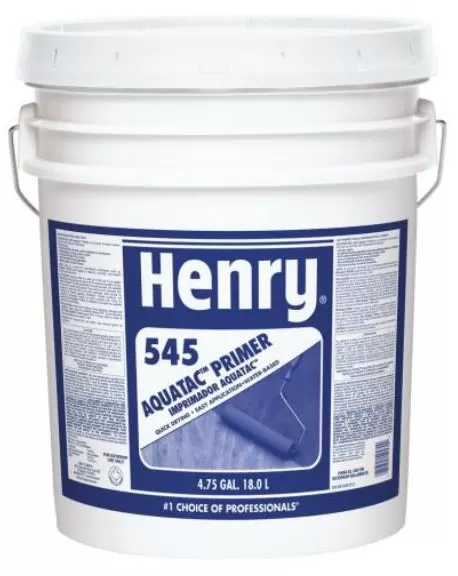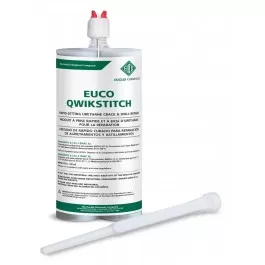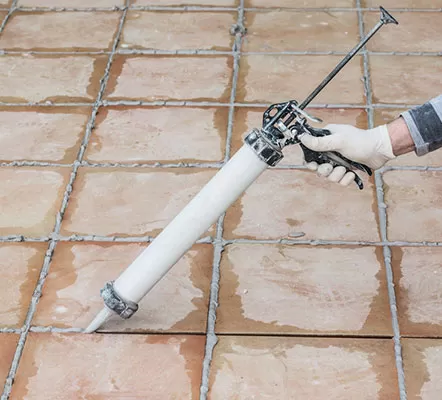Blog
How To Waterproof Cinder Block Walls And CMUs
In commercial construction, the integrity and durability of structures hinge on their resistance to water damage. Specifically, when dealing with cinder block walls and Concrete Masonry Units (CMUs), waterproofing becomes pivotal. Ensuring proper waterproofing cinder block walls and CMUs not only helps in preserving the structure but also aids in preventing potential moisture related complications.
Understanding The Importance of Waterproofing
Waterproofing cinder block walls and CMUs in the realm of commercial construction services cannot be emphasized enough. Despite their widespread use because of their sturdiness and cost effectiveness, cinder blocks and CMUs have an intrinsic characteristic of being porous. This means they are like sponges, capable of soaking up moisture from their surroundings. Over time, this absorbed moisture can compromise the integrity of these blocks, leading to a slew of issues that could endanger the entire structure. Mold and mildew, known for their adverse health effects, find a breeding ground in such damp environments.
But beyond just biological growths, the moisture can lead to the erosion of the mortar, causing blocks to loosen and thereby weakening the entire wall. Furthermore, in cold climates, the water absorbed can freeze and expand, leading to cracks and fissures in the blocks. Recognizing these potential threats underscores the importance of waterproofing. Especially for commercial buildings, where the safety of many is at stake and where repair or remediation costs can be exorbitant, taking preventive measures early on is both a wise and economical choice.
Preparing The Surface
The success of any waterproofing effort largely depends on the preparatory steps taken before the actual application of waterproofing agents. For cinder block walls and CMUs, this means ensuring that the surface to be treated is pristine. A clean surface ensures maximum adhesion of the waterproofing material, optimizing its efficacy. Over the years, cinder blocks can accumulate a significant amount of dirt, dust, old paint, and even biological growths like algae or mold.
These contaminants can act as barriers, preventing the waterproofing material from penetrating the surface effectively. Using a power washer is a popular and efficient method to get rid of stubborn dirt and old, flaking paint. The force of the water cleans out the pores of the blocks, making them ready for treatment. But cleaning is just part of the preparation. Once cleaned, a thorough inspection of the wall is paramount. Identifying and addressing gaps, cracks, or any structural damage ensures that the waterproofing application will be uniform and comprehensive, leaving no vulnerable spots behind.
Choosing The Right Waterproofing Product
There are several products available for waterproofing cinder block walls and CMUs. Each product has its benefits, but it’s essential to choose one that aligns with the specific needs of your commercial construction project. Products like silicate based sealers penetrate the cinder blocks and react chemically, forming a waterproof barrier. Meanwhile, elastomeric paints or waterproofing membranes create a flexible, water resistant layer on the surface. It’s advisable to consult with a waterproofing professional to determine the most suitable product for your specific scenario.
Applying The Waterproofing Material
Once the right product has been selected, the application process should be approached with care. For many waterproofing products, two coats are recommended for optimum results. The first coat is typically thinner, helping to seal the porous surface of the cinder block or CMU. After this initial coat dries, a thicker second coat is applied to ensure comprehensive coverage. It’s crucial to follow the manufacturer’s guidelines regarding drying times and application thickness.
Regular Maintenance And Inspection
Even after successfully waterproofing cinder block walls and CMUs, it’s essential to maintain a routine of regular inspection and maintenance. Environmental factors, wear and tear, and time can affect the integrity of the waterproofing layer. Periodic checks can help identify any potential issues like cracks or chips in the coating.
Consultation With A Waterproofing Professional
While many aspects of waterproofing can be approached as a DIY project, it’s beneficial to seek the expertise of a professional, especially for larger commercial construction projects. Professionals bring a wealth of experience and knowledge about the best products and techniques for different scenarios. Additionally, they can offer invaluable advice on maintaining the waterproofing layer, ensuring it provides long lasting protection.
Cinder block walls and CMUs are staples in commercial construction, known for their robustness and adaptability. However, their porous nature makes them vulnerable to water damage and related issues. By understanding the importance of waterproofing these materials and implementing a thorough and methodical approach, commercial construction professionals can ensure the longevity and durability of their structures. Seeking professional guidance and prioritizing regular maintenance further enhances the effectiveness of the waterproofing process, safeguarding investments and ensuring the integrity of the building for years to come.





